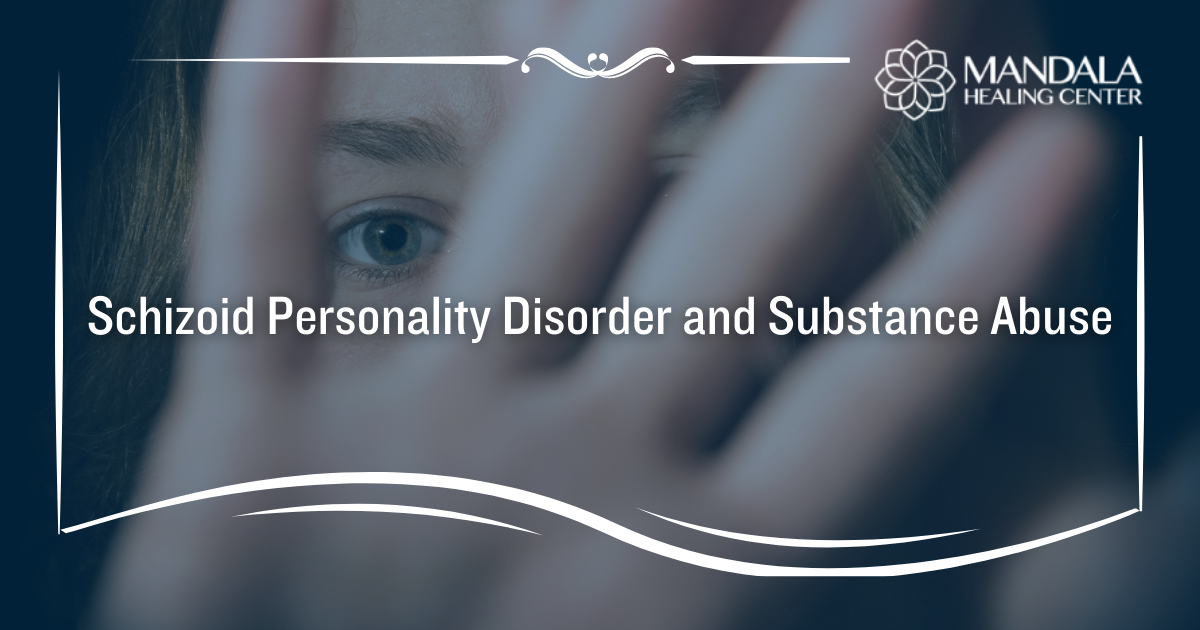Living with addiction can be very hard. The condition causes many consequences, including severe harm to your body, mind, and spirit. You can feel the effects of substance abuse and addiction in your relationships and feelings of self-worth. The more time that goes by, the more difficult it can be to cope with the effects of addiction.
Addiction treatment can give people the skills they need to overcome addiction and lead fulfilling healthy lives. While treatment can be highly effective, certain barriers may prevent people from seeking treatment. Living with a dual diagnosis–a mental illness and a substance use disorder–is one of these barriers.
A mental illness diagnosis, including schizoid personality disorder, can interfere with your ability to recover from addiction. If you have a dual diagnosis or live with both substance abuse and mental illness, you may need specialized treatment to manage both conditions simultaneously.
Schizoid personality disorder is relatively common and can make it more challenging to manage a substance use disorder. Learning as much as possible about schizoid personality disorder and how to treat addiction can help you make informed choices about your care.
For more information about starting addiction treatment, reach out to the specialists at the Mandala Healing Center today.
Understanding Schizoid Personality Disorder (SPD)
Schizoid personality disorder is a personality disorder that can be challenging to diagnose and treat. Many people with this disorder avoid social contact as much as possible, making it less likely for them to seek treatment independently.
Schizoid personality disorder is not the same as schizophrenia. Instead, schizoid personality disorder is a personality disorder with symptoms that include:[1]
- Emotional detachment
- Little to no interest in socializing or relationships
- Flat emotional presentation
- Experiencing no pleasure in activities or relationships
- Difficulty understanding social cues
- Appearing cold, detached, or indifferent
- Low interest in sex
Schizoid personality disorder is more common in men. A family history of schizoid personality disorder, another personality disorder, or significant neglect in early childhood also increases the likelihood of someone developing this condition.
Schizoid Personality Disorder and Substance Abuse
Research has shown a link between substance abuse and personality disorders. However, there is no causal link between substance abuse and schizoid personality disorder. Anyone who uses drugs or alcohol for an extended period is at risk of developing an addiction.
Signs that someone may be living with addiction include:
- Needing more of the substance to get the same effect
- Spending a lot of time thinking about, acquiring, using, and recovering from a substance
- Getting into financial or legal trouble related to substance use
- Isolating from friends or family
- Continuing to use drugs or alcohol despite adverse consequences
About 8 million people in the United States live with a personality disorder and substance abuse.[2] People with a dual diagnosis require specialized treatment that can give them the skills to manage both conditions for the best chance at lifelong recovery.
Effects of Substance Abuse on Schizoid Personality Disorder
Different substances can affect people with schizoid personality disorder in different ways. Some people with SPD may experiment with drugs or alcohol out of curiosity or for specific desired effects.
Alcohol
Alcohol is easily accessible to most people in the US, making it popular among those with schizoid personality disorder. People with SPD report that alcohol’s effects make them enjoy their internal lives and like their company more.
Marijuana
Some people prefer marijuana because it can counteract some of the feelings of emptiness that are common in schizoid personality disorder.
Stimulants
Some people with schizoid personality use stimulant drugs for their energizing effects and may feel more confident in their ability to function socially.
When people use substances to cover up or compensate for mental health symptoms, it is called “self-medicating”. Self-medicating can be somewhat effective in the short term but can lead to a life-altering addiction. It is essential to seek treatment if you are using drugs to help you cope with emotional or physical discomfort.
Treating Schizoid Personality Disorder and Addiction
Treating people with a dual diagnosis of a personality disorder and addiction requires specialized programs that can address both conditions. Effective treatment for schizoid personality disorder and addiction includes:
- Medically-supervised detox
- Individual therapy–especially Cognitive-Behavioral Therapy (CBT)
- Medications
- Holistic treatments, such as nutrition counseling, exercise, and mindfulness practices
- Skill-building and practice
Some programs may incorporate family therapy or group support, as well. The practitioners must offer different levels of care and be able to adjust a person’s treatment plan to meet their changing needs. People with a diagnosed mental illness and substance use disorder must seek treatment from a facility that is qualified to offer dual diagnosis treatment.
Dual Diagnosis Treatment in West Palm Beach, Florida
Mandala Healing Center’s dual diagnosis treatment program can help you or a loved one recover from substance use disorder and a co-occurring mental health condition. If you or someone you love requires addiction treatment or support at any stage of recovery, reach out to the Mandala Healing Center specialists today.
References:












